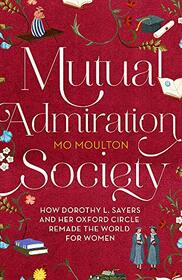Search -
Mutual Admiration Society: How Dorothy L. Sayers and Her Oxford Circle Remade the World For Women
Mutual Admiration Society How Dorothy L Sayers and Her Oxford Circle Remade the World For Women
Author:
In the autumn of 1912, a group of young women founded a writing group at Somerville College, Oxford, that changed their lives - and forged a path for generations of ambitious women to come. They called themselves the 'Mutual Admiration Society' - to prevent anyone else from calling them that first. Smart, bold, serious, and funny, these ... more »
Author:
In the autumn of 1912, a group of young women founded a writing group at Somerville College, Oxford, that changed their lives - and forged a path for generations of ambitious women to come. They called themselves the 'Mutual Admiration Society' - to prevent anyone else from calling them that first. Smart, bold, serious, and funny, these ... more »
ISBN-13: 9781472154439
ISBN-10: 1472154436
Publication Date: 11/7/2019
Pages: 304
Rating: ?
ISBN-10: 1472154436
Publication Date: 11/7/2019
Pages: 304
Rating: ?
0 stars, based on 0 rating
Publisher: Corsair
Book Type: Hardcover
Other Versions: Paperback
Members Wishing: 0
Reviews: Amazon | Write a Review
Book Type: Hardcover
Other Versions: Paperback
Members Wishing: 0
Reviews: Amazon | Write a Review
Genres:
- Biographies & Memoirs >> Arts & Literature >> Authors
- Biographies & Memoirs >> Specific Groups >> Women
- History >> World >> Women in History
- Literature & Fiction >> History & Criticism >> Women Authors
- Nonfiction >> Women's Studies >> Women Writers




